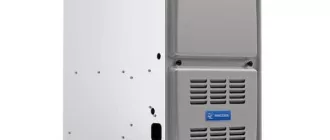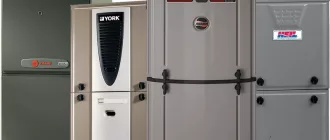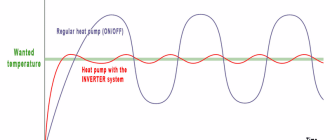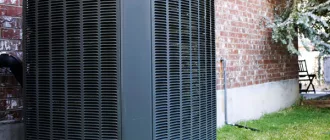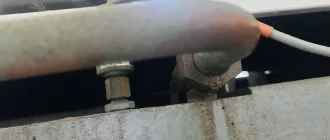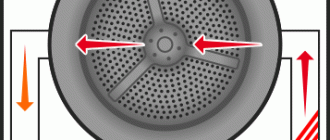Understanding the Reasons Behind the Continuous Operation of Your AC: Exploring the Possibilities of Non-Stop Running
Is your AC running all day and night without a break? If so, you may be wondering why your air conditioning unit is operating non-stop. There could be several reasons for this constant running, and it’s important to understand them to ensure your AC is functioning optimally.
One possible reason for your AC running non-stop is that it’s undersized for your space. If your air conditioner is too small for the area it needs to cool, it may struggle to reach the desired temperature. As a result, it will continue to run in an attempt to cool the room, but may never achieve the desired comfort level.
Another potential cause for continuous AC operation is a dirty or clogged air filter. When the air filter becomes dirty, it restricts airflow, making it harder for your AC to cool the air. This can lead to longer running times as the system works harder to achieve the set temperature.
Lastly, a malfunctioning thermostat could also be the reason why your AC is running non-stop. If the thermostat is not accurately sensing the room temperature, it may not signal the AC to turn off when the desired temperature is reached. This can result in the unit running constantly to maintain the set temperature.
In conclusion, a non-stop running AC could be due to an undersized unit, a dirty air filter, or a malfunctioning thermostat. It’s important to address these issues to ensure your AC operates efficiently and effectively, providing you with optimal comfort.
How Your AC Works
Your AC, or air conditioning unit, is designed to provide cool air to your home or office space. It works by using a continuous operation to keep the temperature at a comfortable level.
When your AC is running non-stop, it means that it is constantly working to maintain the desired temperature. This can be due to various reasons such as hot weather or an inefficient AC unit.
The continuous operation of your AC is achieved through a series of processes. First, the AC takes in warm air from your space and passes it over a set of evaporator coils. The evaporator coils contain a refrigerant that cools the air as it passes through them.
Next, the cooled air is circulated back into your space through the supply vents, while the warm air is expelled outside through the exhaust vents. This continuous cycle helps to keep your space cool and comfortable.
In order to maintain the desired temperature, your AC unit continually monitors the temperature of your space using a thermostat. When the temperature rises above the set point, the AC kicks in and starts the cooling process.
If your AC is running non-stop, it could be a sign of an underlying issue. It is important to have a professional inspect your unit to ensure that it is functioning properly and efficiently. Inefficient AC units can lead to higher energy bills and unnecessary wear and tear on the system.
In conclusion, understanding how your AC works can help you identify why it might be running continuously. By keeping your AC unit well-maintained and ensuring efficient operation, you can enjoy a cool and comfortable space without excessive energy usage.
Importance of Regular Maintenance
Regular maintenance is crucial to ensuring the continuous and efficient operation of your AC unit. By having your AC system checked and serviced on a regular basis, you can prevent it from running non-stop and encountering costly issues. Regular maintenance helps to keep your AC in optimal condition, ensuring it functions efficiently and effectively.
During a maintenance check, a professional technician will inspect and clean various components of your AC unit, including the filter, coils, and motor. They will also check the refrigerant levels and ensure that all electrical connections are secure. This thorough examination allows any potential problems to be addressed before they turn into major issues, saving you from unexpected breakdowns and expensive repairs.
| BENEFITS OF REGULAR MAINTENANCE |
| 1. Improved Energy Efficiency |
| Regular maintenance helps to ensure that your AC unit operates at optimum energy efficiency levels. When your AC is clean and well-maintained, it doesn’t have to work as hard to cool your home, which saves energy and reduces your utility bills. |
| 2. Prolonged Lifespan |
| By addressing any potential issues early on and keeping your AC unit in good working condition, regular maintenance can help extend its lifespan. This means you won’t have to replace your unit prematurely, saving you money in the long run. |
| 3. Improved Air Quality |
| During maintenance, your technician will clean or replace the air filter, ensuring that the air circulating in your home is free from dust, debris, and allergens. This can greatly improve the air quality and help reduce respiratory issues. |
| 4. Peace of Mind |
| Regular maintenance provides peace of mind, knowing that your AC unit is running efficiently and that any potential problems have been addressed. This can help you avoid unexpected breakdowns and ensure that you stay comfortable in your home throughout the year. |
Overall, regular maintenance is essential in keeping your AC unit running smoothly and efficiently. By scheduling routine maintenance checks, you can save money on energy bills, extend the lifespan of your AC unit, improve air quality, and enjoy peace of mind.
Common Causes of Non-Stop Running
When your AC is running non-stop, it can be frustrating and cause concerns about energy usage. There are several common causes for continuous operation:
1. Thermostat Issues: A malfunctioning thermostat can cause your AC to run continuously. If the thermostat is not accurately reading the temperature or if it is set to an extremely low setting, it may keep the AC running when it doesn’t need to.
2. Dirty Air Filters: Clogged or dirty air filters can restrict airflow and cause the AC to run constantly as it tries to cool the space. Regularly changing or cleaning the air filters can help prevent this issue.
3. Refrigerant Leaks: Low refrigerant levels due to leaks can make the AC work harder to cool the air, resulting in continuous operation. A professional HVAC technician should be contacted to identify and fix any refrigerant leaks.
4. Oversized AC Unit: If your AC unit is too large for the space it is cooling, it may cool the room quickly but then cycle on and off frequently or run continuously. This can be an inefficient use of energy. Consulting with an HVAC professional can help determine if your AC unit is properly sized for your space.
5. Poor Insulation: Insufficient insulation can cause air leakage, leading to the AC running non-stop in an attempt to cool the space. Improving insulation in walls, floors, and ceilings can help prevent excessive AC operation.
6. Heat Sources: Excessive heat sources, such as appliances, lighting, or sunlight, can increase the temperature in a room and make the AC run continuously. Minimizing heat sources or using shades to block sunlight can help reduce the load on the AC.
7. Malfunctioning AC Components: Faulty or worn-out AC components, such as the compressor or fan motor, can cause the AC to run continuously. A professional inspection and repair may be necessary to resolve this issue.
Regular maintenance and professional inspections can help identify and resolve these common causes of non-stop running, ensuring efficient operation and prolonging the lifespan of your AC unit.
Dirty Air Filters
One of the main reasons why your AC might be running non-stop is due to dirty air filters. Air filters play a crucial role in the operation of an AC system. They are responsible for trapping dust, dirt, and other particles from the air that passes through the system.
Over time, these air filters can become clogged with debris, making it difficult for air to flow freely through the system. When this happens, the AC unit has to work harder to cool the air, causing it to run continuously without achieving the desired temperature.
Dirty air filters not only reduce the efficiency of your AC, but they can also have adverse effects on indoor air quality. When air filters are dirty, they are unable to effectively remove pollutants from the air, leading to poor indoor air quality which can affect your health.
To prevent your AC from running non-stop due to dirty air filters, it is important to regularly check and replace them. The frequency of filter changes depends on various factors such as the type of filter, the amount of dust and pollutants in your area, and the usage of your AC system.
Regular maintenance of your AC system, including cleaning or replacing air filters, can improve its efficiency, save energy, and prolong its lifespan. It is recommended to follow the manufacturer’s guidelines for filter replacement and maintenance.
Remember, clean air filters not only keep your AC system running smoothly but also ensure better indoor air quality for you and your family.
Refrigerant Leaks
If your AC is running non-stop and the operation seems to be continuous, you might be dealing with a refrigerant leak. The refrigerant is the substance that cools the air in your AC system, and when it starts to leak, your AC might have to work harder to cool the air, resulting in constant operation.
A refrigerant leak can occur due to various reasons, such as aging components, corrosion, or poor installation. When the refrigerant level drops, your AC will struggle to maintain the desired temperature, leading to non-stop operation.
It’s important to note that refrigerant leaks not only affect the efficiency of your AC but can also be harmful to the environment. Refrigerants are potent greenhouse gases that contribute to climate change. Therefore, if you suspect a refrigerant leak, it’s essential to have it addressed by a professional HVAC technician.
When dealing with refrigerant leaks, it’s crucial to understand that simply refilling the refrigerant is not a long-term solution. The leak needs to be located and fixed to prevent future problems and ensure optimal AC performance.
If your AC is running non-stop and you suspect a refrigerant leak, it’s best to contact a licensed HVAC professional. They have the expertise to diagnose the issue, repair any leaks, and recharge the system with the appropriate amount of refrigerant.
Remember: Ignoring a refrigerant leak will not only lead to high energy bills but can also damage your AC system and harm the environment. It’s important to address the issue promptly to ensure efficient and sustainable AC operation.
Thermostat Issues
One of the possible causes for your AC running non-stop and continuously is a problem with the thermostat. The thermostat is responsible for regulating the temperature in your home and signaling the AC when to turn on and off. If there is an issue with the thermostat, it may incorrectly perceive the temperature and result in the AC running constantly.
There are a few thermostat issues that could be causing this continuous operation. One common problem is a faulty temperature sensor. If the sensor is not reading the correct temperature, it may send incorrect signals to the AC unit, causing it to run non-stop. Another possible issue is a malfunctioning thermostat relay, which is the component responsible for initiating the cooling cycle. If this relay is stuck in the “on” position, the AC will keep running even when it shouldn’t.
Additionally, a poorly calibrated thermostat can also lead to constant AC operation. If the thermostat is not calibrated correctly, it may inaccurately read the temperature, causing it to mistakenly signal the AC to run. It’s important to have your thermostat professionally calibrated to ensure it is providing accurate readings.
If you notice that your AC is running non-stop and continuously, it’s worth checking for thermostat issues. Consider getting your thermostat inspected by a professional to diagnose and resolve any problems that may be causing the continuous operation. This will help ensure your AC is running efficiently and effectively, saving you energy and reducing wear and tear on the system.
Oversized AC Unit
One of the main reasons why an AC unit might be running continuously is because it is oversized for the space it is supposed to cool.
When an AC unit is too large for the area it is trying to cool, it can cool the space too quickly. As a result, the unit will reach the desired temperature faster than it should and turn off. But since the unit is oversized, it has the capacity to cool the space much faster than necessary.
When the AC unit turns off, the temperature in the room will start to rise again. The AC unit will detect this and turn back on, starting the continuous cycle.
Not only does an oversized AC unit lead to continuous operation, but it can also cause other issues. The unit’s frequent cycling can put a strain on its components and decrease its lifespan. Additionally, it can lead to high energy consumption, resulting in higher energy bills.
If your AC unit is oversized for your space and is running non-stop, it is recommended to consult with a professional HVAC technician. They can assess your cooling needs and recommend the appropriate size unit for your space. This will help ensure efficient operation and prevent continuous running of the AC unit.
Undercharged AC System
An undercharged AC system is a common reason for continuous running operation of your AC. When an AC system is undercharged, it means that there is not enough refrigerant in the system to properly cool the air. This can lead to your AC running constantly in an attempt to cool your space, as it is unable to reach the desired temperature.
There are several reasons for an undercharged AC system. It could be due to a refrigerant leak, improper installation, or a mistake during maintenance or repair. Regardless of the cause, an undercharged AC system can result in reduced efficiency and increased energy consumption.
If you suspect that your AC system is undercharged, it is important to have a professional HVAC technician inspect and resolve the issue. They will be able to identify the source of the problem and recharge your AC system with the correct amount of refrigerant.
Remember, running your AC continuously can put unnecessary strain on the system and lead to higher energy bills. By addressing an undercharged AC system, you can help ensure that your AC operates efficiently and effectively to keep your space cool and comfortable.
Blocked Air Vents
One of the reasons your AC might be running non-stop is if the air vents in your home are blocked. When air vents become blocked, it restricts the flow of air and reduces the efficiency of your HVAC system.
Blocked air vents can occur for several reasons. Furniture or objects placed in front of vents can obstruct the airflow, preventing cool air from reaching the desired areas of your home. Additionally, dust and debris can accumulate over time, clogging the vents and hindering the flow of air.
If your AC is running continuously and you suspect blocked air vents, inspect each vent in your home to ensure they are not obstructed. Clear any furniture or objects that may be blocking the vents and remove any debris or dust build-up.
In some cases, the blockage may be located deeper within the air ducts. Hiring a professional HVAC technician to perform a thorough duct cleaning can help clear any obstructions and restore proper airflow.
Ensuring that your air vents are not blocked is essential for the continuous operation of your AC system. By maintaining clear and unobstructed air vents, you can keep your home cool and comfortable while maximizing the efficiency of your HVAC system.
Air Duct Issues
One of the common reasons why your AC might be running non-stop is due to air duct issues. The air ducts play a crucial role in the operation of your HVAC system, as they are responsible for distributing cool air throughout your home. If there are any issues with your air ducts, it can lead to continuous operation of your AC unit.
There are several air duct issues that can cause your AC to run non-stop. One common issue is leaks in the air ducts. When there are leaks in the ductwork, cool air can escape before it reaches its intended destination. As a result, your AC unit will have to work harder and run longer to cool your home, leading to continuous operation.
Another issue that can cause your AC to run non-stop is blockages in the air ducts. Over time, dust, dirt, and other debris can accumulate in your air ducts, causing blockages. These blockages restrict the airflow, making it harder for your AC unit to cool your home. As a result, your AC will have to run continuously to try to achieve the desired temperature.
Additionally, poorly designed or installed air ducts can also contribute to continuous operation of your AC. If the air ducts are not properly sized or installed, it can lead to inefficiencies in your HVAC system. These inefficiencies can cause your AC unit to work harder and run longer, leading to non-stop operation.
To address air duct issues, it is important to have your ductwork inspected and maintained regularly. This can help identify any leaks, blockages, or design/installation issues that may be causing your AC to run non-stop. By addressing these issues, you can improve the efficiency of your HVAC system and reduce the continuous operation of your AC unit.
Humidity Levels
One possible reason for your AC running non-stop could be high humidity levels. When the humidity in your home is too high, your AC has to work harder to remove the excess moisture from the air. This continuous operation can cause your AC to run non-stop, as it tries to maintain a comfortable humidity level.
To check if high humidity is the issue, you can use a hygrometer to measure the humidity levels in your home. Ideally, the humidity should be between 30% and 50% for optimal comfort. If the humidity levels are consistently above this range, it might be a good idea to invest in a dehumidifier.
A dehumidifier can help reduce the humidity in your home, relieving some of the strain on your AC. It works by extracting moisture from the air, helping to create a more comfortable indoor environment.
In addition to using a dehumidifier, there are also some other steps you can take to reduce humidity in your home. These include: ensuring proper ventilation, using exhaust fans in kitchens and bathrooms, fixing any water leaks or plumbing issues, and keeping windows and doors closed during humid weather.
By addressing high humidity levels, you can help prevent your AC from running non-stop and enhance its overall operation.
| Increased discomfort | Use a dehumidifier |
| Potential for mold and mildew growth | Ensure proper ventilation |
| Increased energy consumption | Use exhaust fans in kitchens and bathrooms |
| Reduced AC efficiency | Fix water leaks or plumbing issues |
External Factors
There are several external factors that can contribute to your AC running continuously without stopping. These factors include:
High outdoor temperatures: When the temperature outside is extremely high, your AC may struggle to cool the air efficiently, causing it to run non-stop.
Poor insulation: If your home is not properly insulated, hot air from outside can seep in easily, forcing your AC to work harder and run continuously.
Large windows: Having large windows that are exposed to direct sunlight for a long period of time can increase the heat gain in your home, leading to the continuous operation of your AC.
Leaky ducts: If your ductwork has leaks or cracks, cool air may escape before reaching its intended destination. This can result in your AC running non-stop as it tries to compensate for the lost air.
Blocked air vents: Obstructed air vents prevent proper air circulation, causing your AC to work longer and harder to cool your home, leading to continuous operation.
Improper AC sizing: If your AC unit is too small for your space, it may struggle to cool the area effectively, causing it to run non-stop. On the other hand, if it is too large, it may cycle on and off frequently, which can also be inefficient.
Malfunctioning thermostat: A malfunctioning thermostat can cause your AC to constantly run, as it fails to accurately sense the temperature and signal the system to turn off.
Considering these external factors can help you understand why your AC is running continuously. Addressing these issues can optimize the performance of your AC and save energy.
Energy Efficiency and Continuous Operation
One of the key factors to consider when it comes to the continuous operation of an AC unit is energy efficiency. The longer your AC runs non-stop, the more energy it consumes. This can lead to higher electricity bills and an overall increase in energy consumption.
Understanding the energy efficiency of your AC unit can help you optimize its operation and minimize energy waste. One way to do this is by ensuring that your AC unit is properly sized for the space it is cooling. An oversized unit may cool the space too quickly and cycle on and off frequently, while an undersized unit may have to run continuously to maintain the desired temperature.
Regular maintenance and cleaning of your AC unit can also contribute to energy efficiency. Dirty filters, clogged condenser coils, and other issues can reduce the efficiency of your AC and cause it to run non-stop. Keeping these components clean and well-maintained can improve airflow and overall performance, reducing the need for continuous operation.
Additionally, using programmable thermostats can help you manage the temperature settings of your AC unit more efficiently. By programming different temperature settings for different times of the day, you can avoid unnecessary cooling when no one is at home or during periods when lower temperatures are not required.
Overall, prioritizing energy efficiency in the continuous operation of your AC unit can save you money, reduce energy consumption, and contribute to a more sustainable environment.
The Impact on Your Electricity Bill
When your AC is running non-stop, it can have a significant impact on your electricity bill. The continuous operation means that your AC is using more energy to maintain the desired temperature in your home. This increased energy consumption leads to higher electricity costs.
AC units are designed to cycle on and off to maintain a comfortable indoor temperature. However, when the AC is running continuously, it is not able to take advantage of these cycles. This constant operation leads to a continuous use of electricity, resulting in higher energy consumption.
In addition, running your AC non-stop can also cause your system to wear out faster. The constant operation puts a strain on the components of your AC, leading to more frequent breakdowns and the need for repairs or maintenance.
To minimize the impact on your electricity bill, it’s important to understand why your AC is running non-stop. It could be due to a clogged air filter, a malfunctioning thermostat, or an undersized unit for your home’s cooling needs. Regular maintenance and inspection of your AC system can help identify and address these issues, ensuring that your AC operates efficiently and does not unnecessarily drive up your electricity bill.
In conclusion, running your AC non-stop can lead to higher energy consumption and an increase in your electricity bill. Regular maintenance and addressing any issues promptly can help ensure that your AC operates efficiently and saves you money in the long run.
Potential Damage to Your AC
When your AC is constantly running without any breaks, it can cause potential damage to the system. Continuous operation puts a significant strain on the AC unit, leading to wear and tear of its components. This can result in various problems that may require expensive repairs or even a complete replacement of the AC unit.
One of the potential damages that can occur is compressor failure. The compressor is responsible for circulating the refrigerant and maintaining the cooling process. When the AC runs continuously, the compressor doesn’t get a chance to rest and cool down, causing it to overheat and eventually fail. Compressor replacement can be a costly repair, and in some cases, it might be more cost-effective to replace the entire AC unit.
Continuous operation can also lead to frozen coils. The AC unit relies on a proper airflow to maintain the balance between cooling and dehumidifying the air. When the system runs non-stop, it can cause the evaporator coils to freeze due to inadequate airflow. Frozen coils not only hinder the AC’s cooling capacity but can also cause water leakage and damage to other components of the unit.
In addition, continuous operation can lead to excessive humidity inside your home. The AC unit is designed to dehumidify the air as well as cool it. If the system is constantly running, it’s unable to effectively remove moisture from the air, leading to high humidity levels indoors. Excessive humidity not only makes your home uncomfortable but can also promote the growth of mold and mildew, which can be detrimental to your health and cause damage to your property.
Lastly, continuous operation of the AC unit can result in increased energy consumption and higher utility bills. When the system runs non-stop, it uses a significant amount of energy to maintain the desired temperature. This not only puts a strain on your wallet but also contributes to increased carbon emissions and has a negative impact on the environment.
Overall, running your AC continuously can cause potential damage to the unit, leading to expensive repairs, reduced cooling capacity, increased humidity, and higher energy consumption. It’s important to ensure that your AC operates in cycles and has sufficient breaks to prevent these potential damages and extend the lifespan of your unit.
Signs It’s Time to Call a Professional
If your AC is running non-stop and continuously, it might be a sign that there is a problem with your system that requires professional attention. Here are some signs that it’s time to call an AC technician:
1. Your AC is not cooling your home effectively: If you’ve noticed that your AC is running constantly but not producing enough cool air, it could be an indication that there is an issue with the compressor or the refrigerant levels. A professional can diagnose and fix the problem to ensure your AC is working efficiently.
2. Strange noises or smells: If you hear strange noises such as banging, rattling, or screeching coming from your AC unit, or if you notice a foul smell when it’s running, it’s a good idea to call a professional. These noises and smells could be indicators of a mechanical issue or a blockage that needs to be addressed.
3. High energy bills: A constantly running AC can lead to higher energy bills. If you notice a significant increase in your energy expenses and your AC seems to be running non-stop, it’s worth having a professional examine your system. They can identify any inefficiencies or malfunctions and make the necessary repairs to help reduce your energy costs.
4. Ice formation on the unit: If you see ice forming on your AC unit, it could be a sign of a refrigerant leak or restricted airflow. Both of these issues can cause your AC to run continuously. A professional can identify the cause of the ice formation and fix the underlying problem.
5. Thermostat issues: If your AC is running non-stop, it could be due to a faulty thermostat. A malfunctioning thermostat may not be sending the correct signals to your AC unit, causing it to run continuously. An experienced technician can inspect and repair or replace your thermostat as needed.
Remember, a continuously running AC can lead to increased wear and tear on the system, higher energy bills, and a less comfortable indoor environment. If you’re experiencing any of these signs, it’s important to call a professional to diagnose and resolve the issue promptly.
Q&A:
Why is my AC running constantly?
There are several possible reasons why your AC might be running non-stop. It could be due to a dirty air filter, which restricts airflow and causes the AC to work harder to cool the room. Another possible reason is that the AC is not properly sized for the room it is trying to cool. Inefficient insulation or leaky ductwork can also cause the AC to run constantly. It is best to consult with a professional to determine the exact cause.
Will running my AC constantly damage it?
Running your AC constantly can potentially cause some damage. Continuous operation puts more strain on the AC’s components, which can lead to premature wear and tear. It can also increase your energy bills. Additionally, if the AC is running constantly due to a malfunction or incorrect sizing, it could lead to other issues that require costly repairs. It is best to address the underlying issue causing the continuous operation and seek professional help if needed.
Is it normal for my AC to run all the time during hot weather?
It is not normal for your AC to run constantly during hot weather. While the AC may run more often in order to maintain a comfortable temperature, it should still turn off periodically as it reaches the desired temperature. If your AC is continuously running without turning off, it could indicate an underlying issue such as a dirty air filter, improper sizing, or a malfunctioning component. It is recommended to have a professional inspect your AC system to address the issue.
Can a dirty air filter make my AC run non-stop?
Yes, a dirty air filter can cause your AC to run constantly. When the air filter becomes clogged with dirt and debris, it restricts the airflow, making it harder for the AC to cool the room. As a result, the AC has to work longer and harder to reach the desired temperature, leading to continuous operation. Regularly replacing or cleaning the air filter is important to ensure proper airflow and prevent unnecessary strain on the AC unit.
What should I do if my AC is running continuously?
If your AC is running continuously, there are several steps you can take. First, check the air filter and clean or replace it if necessary. Make sure that the thermostat is set to the desired temperature and is not set to “on” instead of “auto,” as the “on” setting keeps the fan running constantly. If these steps do not solve the issue, it is best to contact a professional HVAC technician to diagnose and repair the problem. They will be able to determine if there is an underlying issue causing the continuous operation and provide the necessary solution.
Why is my AC running non-stop?
There could be a few reasons why your AC is running non-stop. One possibility is that your thermostat is set to a temperature that is too low, causing the AC to continuously run in order to reach that temperature. Another reason could be that there is a problem with the AC itself, such as a refrigerant leak or a malfunctioning compressor. It is also possible that your home is not properly insulated, leading to a constant need for cooling. If your AC is running non-stop, it is best to have a professional inspect it to determine the exact cause.

